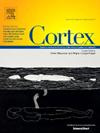用迷幻疗法打开心灵之眼的潜在风险
IF 3.3
2区 心理学
Q1 BEHAVIORAL SCIENCES
引用次数: 0
摘要
随着迷幻药在多个国家的合法化,迷幻药的使用量正在上升。在这里,我们就最近的报道写一篇警告,这些报道称,患有幻觉症(一种盲目的心灵之眼)的人在使用迷幻药后获得了视觉心理意象。虽然获得或增加视觉心理意象的前景对许多人很有吸引力,但强烈的心理意象与一系列心理状况有关。在患有幻觉症的人身上“打开”视觉意象,或者在神经正常的人身上增加视觉意象的强度,可能会对心理健康产生怎样的影响,目前还不得而知。我们提倡提高对这一问题及其伦理影响的认识,特别是在知情同意方面。本文章由计算机程序翻译,如有差异,请以英文原文为准。
The potential risks of opening the mind’s eye with psychedelic therapies
Psychedelic therapy is on the rise, as its legalisation is ongoing in multiple countries. Here, we write a note of warning regarding recent reports that people with aphantasia (a blind mind’s eye) have acquired visual mental imagery after using psychedelics. While the prospect of gaining, or indeed increasing, visual mental imagery is appealing to many, strong mental imagery has been associated with a range of mental conditions. How ‘switching on’ visual imagery in people with aphantasia or increasing its strength in neurotypical individuals might impact mental health remains unknown. We advocate for increased awareness of this issue and its ethical implications, particularly regarding informed consent.
求助全文
通过发布文献求助,成功后即可免费获取论文全文。
去求助
来源期刊

Cortex
医学-行为科学
CiteScore
7.00
自引率
5.60%
发文量
250
审稿时长
74 days
期刊介绍:
CORTEX is an international journal devoted to the study of cognition and of the relationship between the nervous system and mental processes, particularly as these are reflected in the behaviour of patients with acquired brain lesions, normal volunteers, children with typical and atypical development, and in the activation of brain regions and systems as recorded by functional neuroimaging techniques. It was founded in 1964 by Ennio De Renzi.
 求助内容:
求助内容: 应助结果提醒方式:
应助结果提醒方式:


